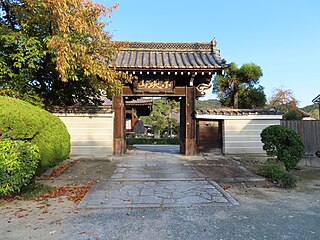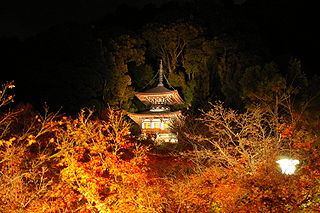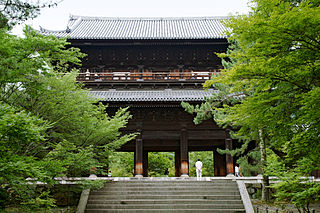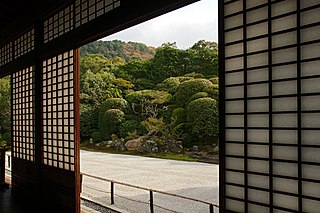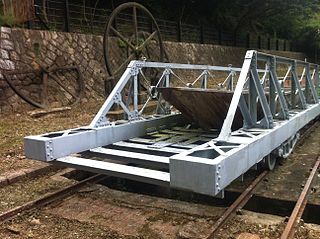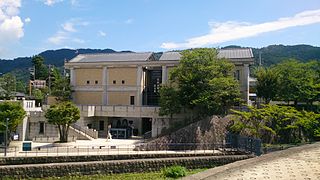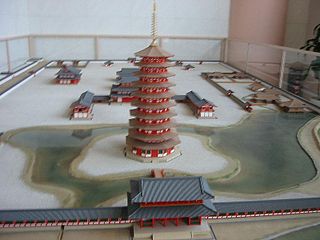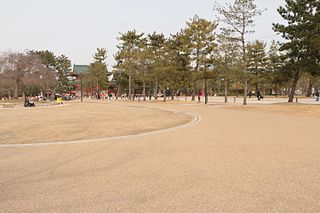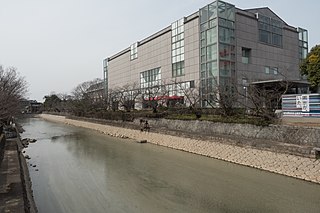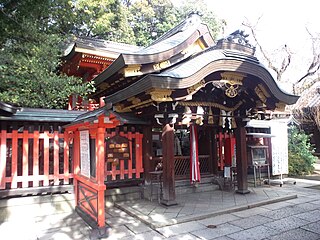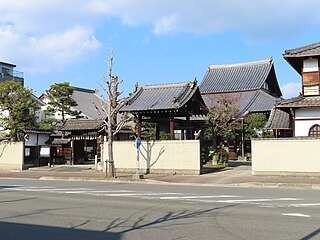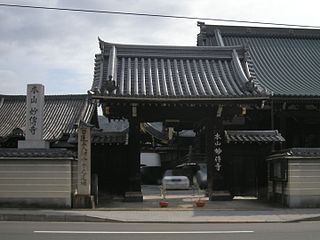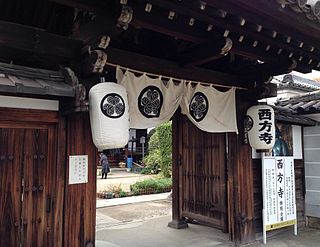Self-guided Sightseeing Tour #14 in Kyoto, Japan
Legend
Guided Free Walking Tours
Book free guided walking tours in Kyoto.
Guided Sightseeing Tours
Book guided sightseeing tours and activities in Kyoto.
Tour Facts
7.9 km
150 m
Experience Kyoto in Japan in a whole new way with our self-guided sightseeing tour. This site not only offers you practical information and insider tips, but also a rich variety of activities and sights you shouldn't miss. Whether you love art and culture, want to explore historical sites or simply want to experience the vibrant atmosphere of a lively city - you'll find everything you need for your personal adventure here.
Activities in KyotoIndividual Sights in KyotoSight 1: Heian Shrine
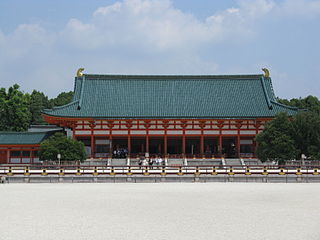
The Heian-jingu Shrine is a Shinto shrine located in Sakyō-ku, Kyoto, Japan. The Shrine is ranked as a Beppyō Jinja (別表神社) by the Association of Shinto Shrines. It is listed as an important cultural property of Japan.
Sight 2: 満願寺
Manganji Temple is a temple of Nichiren Buddhism located in Sakyo-ku, Kyoto, Japan. The name of the mountain is Mt. Jigenzan.
Sight 3: Konkai kōmyō-ji
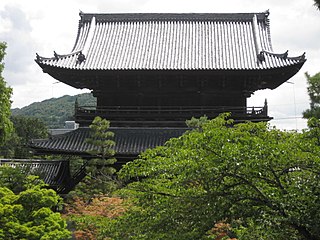
Konkaikōmyōji (金戒光明寺), also the Kurodani Temple, is a Buddhist temple in Kyoto, Japan. It is one of Head Temple of the Jōdo Sect of Buddhism.
Sight 4: Higashi-Tenno Okazaki-Jinja
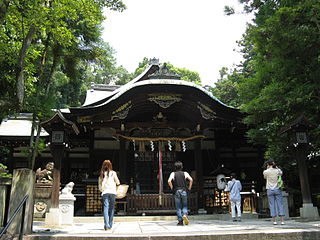
Okazaki Shrine is a shrine located in Okazaki Higashi-Tenno-cho, Sakyo-ku, Kyoto. It is also known as the "Eastern Heavenly King". Since the surrounding area was once the habitat of wild rabbits, rabbits are said to be the messengers of the gods.
Sight 5: Nyakuoji-jinja Shrine
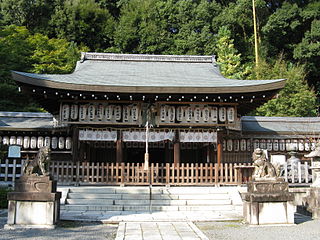
Kumano Wakaoji Shrine is a shrine located in Wakaoji-cho, Sakyo-ku, Kyoto. The former company name is Murasha. It used to be the shrine of Zenrinji Temple. It is located at the southern end of the philosophical path. It is commonly known as the Wakaoji Shrine. One of the three Kumano in Kyoto.
Sight 6: Eikan-dō Zenrin-ji Temple
Eikan-dō Zenrin-ji (永観堂禅林寺) is the head temple for the Seizan branch of Japan's Jōdo-shū Buddhist sect, located in Kyoto, Sakyō-ku. It was founded by Shinshō, a pupil of Kūkai, and is famous for its fall foliage and for its prominence in the past as a center of learning.
Sight 7: Nanzen-ji
Nanzen-ji , or Zuiryusan Nanzen-ji, formerly Zenrin-ji , is a Zen Buddhist temple in Kyoto, Japan. Emperor Kameyama established it in 1291 on the site of his previous detached palace. It is also the headquarters of the Nanzen-ji branch of Rinzai Zen. The precincts of Nanzen-ji are a nationally designated Historic Site and the Hōjō gardens a Place of Scenic Beauty. The temple was destroyed in a fire in 1895 and rebuilt in 1909.
Sight 8: Konchi Temple
Konchi-in (金地院) is a Buddhist temple in Sakyō-ku, Kyoto, western Japan.
Sight 9: Murin-an
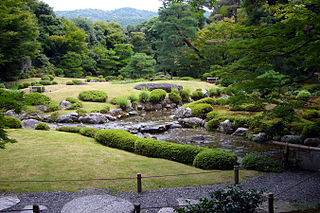
Murin-an (無鄰菴) is a Japanese garden in Kyoto, owned by political and military leader Gensui Prince Yamagata Aritomo, designed by Ogawa Jihei and built between 1894 and 1898. It is an example of a classical Japanese promenade garden of the Meiji Period.
Sight 10: Keage Incline
The Keage Incline was an inclined railway (incline) that formed a section of the boat transportation route by the Lake Biwa Canal in Sakyo Ward, Kyoto.
Sight 11: Lake Biwa Canal Museum of Kyoto
The Lake Biwa Water Memorial Museum is a memorial museum located in Sakyo Ward, Kyoto City, Kyoto Prefecture. Opened on August 9, 1989. It was opened by Kyoto City to commemorate the 100th anniversary of the completion of the Lake Biwa Canal, a canal connecting Lake Biwa and Kyoto.
Sight 12: 法勝寺九重塔址
Hosshō-ji was a Buddhist temple in northeastern Kyoto, Japan, endowed by Emperor Shirakawa in fulfillment of a sacred vow. The temple complex was located east of the Kamo River in the Shirakawa district; and its chief architectural feature was a nine-storied octagonal pagoda.
Sight 13: Kyoto Municipal Museum of Art
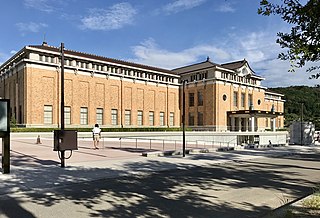
The Kyoto City KYOCERA Museum of Art (京都市京セラ美術館) is located in Okazaki Park in Sakyō-ku Kyoto. Formerly Kyoto Municipal Museum of Art , it is one of the oldest art museums in Japan. it opened in 1928 as Shōwa Imperial Coronation Art Museum of Kyoto, a commemoration of Emperor Hirohito's coronation.
Sight 14: Okazaki Park
Okazaki Park is an urban park (general park) located in Okazaki, Sakyo-ku, Kyoto, Japan. A park opened on the site of the 1895 National Industrial Exposition.
Sight 15: The National Museum of Modern Art, Kyoto
The National Museum of Modern Art, Kyoto is an art museum in Kyoto, Japan.
Wikipedia: National Museum of Modern Art, Kyoto (EN), Website
Sight 16: Yurinkan museum
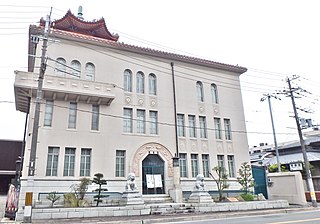
The Yūrinkan Museum (有鄰館) or Fujii Saiseikai Yūrinkan (藤井斉成会有鄰館) is a private museum of East Asian art in Kyōto, Japan. Established in 1926 by entrepreneur and politician Fujii Zensuke (1860–1934), it is the second oldest private museum in Japan, after the Ōkura Shūkokan. The collection, particularly strong in Chinese art from the Shang to the Qing, includes one National Treasure and nine Important Cultural Properties.
Sight 17: 満足稲荷神社
Manzoku Inari Shrine is a shrine located in Higashimonzen-cho, Higashi-oji-dori, Sakyo-ku, Kyoto. The common name is "Mr. Satisfied". The former company name is Murasha.
Sight 18: 本妙寺
Honmyoji Temple is a temple of Nichiren Buddhism located in Higashi-iri-Kitamon-mae-cho, Niomon-dori, Higashi-oji, Sakyo-ku, Kyoto-shi, Kyoto, Japan. The name of the mountain is Xiangguang Mountain. The former main temple is Kyoto Myokaku-ji Temple, and the Shrine of the Temple. In the precincts are the graves of Yoshida Kaneryo and Kanesada father and son, and Kaiga Tomonobu, which are called the temple of Ako Yoshishi.
Sight 19: 妙伝寺
Myodenji Temple is a head temple of the Nichiren sect located in Kitamonmae-cho, Sakyo-ku, Kyoto City, Kyoto Prefecture. Its mountain name is Hokkyozan. There are five sub-temples (Myoshakuin, Enritsuin, Ryugakuin, Honkoin, and Gyokukiin).
Sight 20: 西方寺
Saihoji is a Jodo sect temple located in Sakyo Ward, Kyoto City, Kyoto Prefecture. Its mountain name is Gangaizan, and the main deity is Amida Nyorai. It is said to have been founded by the Minister of the Left, Ooi no Mikado Kyoshu, in the late Heian period. It serves as the family temple for the Ooi no Mikado family of the Fujiwara clan, the Ayakouji family of Emperor Uda, and the Gotsuji family. It is usually not open to the public, but may be opened on special occasions such as the Kyoto Hidden Cultural Assets Special Openings.
Share
Disclaimer Please be aware of your surroundings and do not enter private property. We are not liable for any damages that occur during the tours.
GPX-Download For navigation apps and GPS devices you can download the tour as a GPX file.
